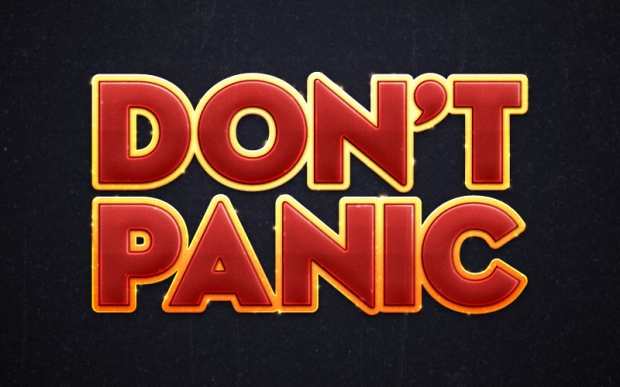Open Enrollment is that magical time of year when you have a brief window of opportunity to make decisions about your retirement, savings, life insurance, health insurance, and whether or not you want to join the local granola grocery co-operative via payroll deduction. Okay, so maybe some parts of Open Enrollment are more important than others.
At my work, we have a health and wellness fair during Open Enrollment where all employees can show up and visit vendors, talk to various company representatives, have their blood pressure checked, get flu shots, and participate in testicular cancer screenings. It’s usually a complete madhouse, with way too many people, so I tend to avoid it if at all possible. This year, however, I went so that I could get some information on my health insurance options, and make the rounds taking advantage of free information and basic health services.
Wait…what do you mean nobody was supposed to be performing testicular cancer screenings? Dangit! Fooled again!
At the end of the week, I was clicking around doing research and exploring my options for 2014, and I stumbled across some panicked discussions of changes to prescription drug coverage. As I lurked, and got caught up on what was going on, I realized that the prescription drug insurance company that folks were talking about was the same as the one that I use to get those things that I can’t live without, like insulin and BG strips.
Word has been getting around that Express Scripts is changing their coverage, or preferred coverage, or well, really it just depends on how you look at it and what your contract with Express Scripts says. But don’t take my word for it. The CMO of Express Scripts lays it out pretty clearly: It’s all about money. Shocker, right? (That’s sarcasm.)
For me and my diabetes, my biggest concern had to do with the coverage of Novolog shifting over to a questionable category in the Express Scripts 2014 Forumlary (PDF) called “Excluded Medications.” What does that even mean? Does it mean that Novolog is no longer covered at all? Because that is what I think when I see the word “excluded.”
Well, despite being on a list of “Excluded Medications,” I was able to confirm with my HR representatives and pharmaceutical reps that “excluded” really means that those drugs and products are no longer “preferred” medications, but are still covered as non-preferred medications, which means they fall under a higher copay, as well as possibly requiring the patient to pay the difference between the non-preferred brand name medication and the preferred alternative. As an alternative to Novolog and Apidra, Express Scripts is suggesting Humalog. When I talked to a physician friend of mine and he mentioned a recent visit by a Lilly rep (who manufactures Humalog) to his office, the word he used to describe the Lilly rep’s reaction to the Express Scripts formulary changes was “jubilation.”
But don’t worry folks, Viagra is still covered and preferred.
The shared reasoning behind so many drugs moving over to the non-preferred list at Express Scripts is because they do not believe that many newer, more expensive, more recently researched medications are as effective as their cheaper counterparts. They feel that patients already have enough options. Besides, patients are all the same, right? I mean, if you have diabetes, and I have diabetes, then we’re basically twins. Right? No.
I know what I need for my diabetes. My immediate healthcare team knows what I need for my diabetes. My A1C says that what I’m doing is working pretty well. This is MY diabetes. There are many sort of like it, but this one is MINE. Pharmacies and prescription drug insurance companies focus on how much I cost, and how much money they stand to make or lose from me, which is the biggest decider in the level of service that they provide. That is business, and as someone with a chronic condition who needs prescriptions on an ongoing basis, I’m not worth as much to them as a person who pays a monthly premium but never uses prescription benefits. To hedge their losses, they move prescriptions that are actually working better over to a non-preferred status so that they don’t have to lose as much money filling orders that are more expensive. To be honest, I’d probably do the same if it were my finances. The difference is that my personal financial savings decisions don’t usually require other people to make decisions about how they are going to live and survive. < /rant >
In some situations, where your physician feels that you need the brand name medication that is on the non-preferred list, there is a solution that may help. I was advised by my benefits group of the following:
If you request a preferred brand-name drug when a generic is available, you must pay the difference between the generic cost and the preferred brand-name cost, plus the appropriate copayment or coinsurance. If your physician writes on the prescription that the preferred brand-name drug is medically necessary or“dispense as written” and the reason, you pay only the appropriate copayment or coinsurance.
Maybe none of this information is helpful to you. Maybe you are covered at 100% and don’t have to worry about copays, preferred and non-preferred medications, or notes from your doctors that include the words “medically necessary.” Or maybe you’re wondering how you’re going to be able to afford insulin in 2014, along with BG strips, pump supplies, glucagon, doctor appointments, and other diabetes randomness. Whatever the case, DON’T PANIC. In most cases, you still have time to get an appointment with your healthcare team to talk about your needs and build a plan for what is next. With insurance, prescriptions, and even diabetes advancements, the only thing that is constant is change. Diabetes is a different beast every day, and we adapt to it constantly. This too, we will adapt to.
